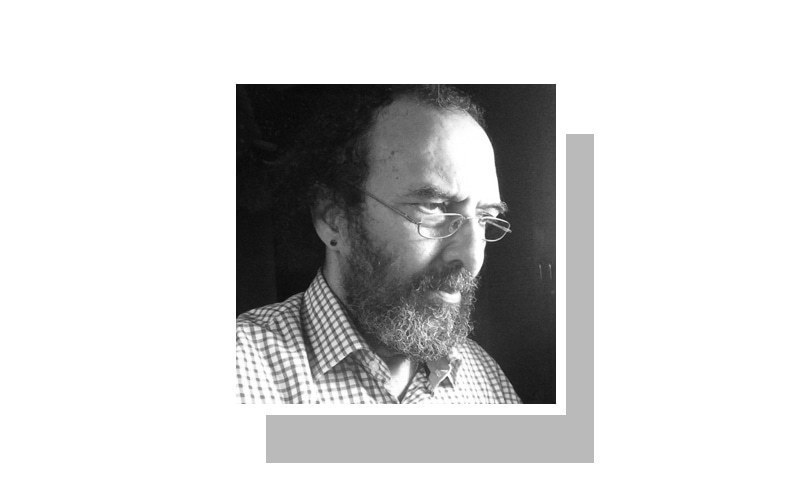BEFORE everyone began to tiptoe around everyone’s religion for fear of causing offence, there was humour that burst forth from within everyone’s social crevices. Sikh jokes were shared primarily by Sikhs, preferably with their non-Sikh friends. The more creative Hindu boys in my Lucknow neighbourhood wrote outrageously funny, even scandalous, versions of the Ramayana in the Awadhi dialect that would make Goswami Tulsidas sit up. Lucknow’s Shia-Sunni banter was legendary before the joke went sour.
Sunnis were machchar or mosquitoes for the Shias and they in turn for whatever reasons were assigned the sobriquet of khatmal, or bedbugs.
In a similar vein, when the Pakistan International Airlines or PIA went dry during the Zia era — and it has remained so since — a wag from Karachi thought up a new name for the different spirit flaunted by his national carrier. ‘Ghar se PIA’ was a miffed taunt but it also roughly translated as drink at home and come.
The dingdong tussle between social impositions rooted in religion and uncompromising men and women that seek to reject such edicts is perhaps as old as religion itself. Allama Iqbal though a believer rarely missed an opportunity to mock the mullah, the priest, as villainous.
As with religious revivalism elsewhere, Kerala has its share, including more Muslim girls taking to the headscarf.
There is room for improvement with or without the humour. In a more contemporary if sombre context, before they slaughter the next innocent Christian or Jew over his or her faith, the marauders of the militant Islamic State group might consider Rachel Corrie’s death that spoke of selfless camaraderie with the downtrodden that religious zealots are not capable of.
The American girl defied an Israeli bulldozer that was wreaking havoc on the Palestinians, her friends, and was mowed down. An ideal Palestine-Israel of Corrie’s dream would be a nation in which Jews, Christians and Muslims from its soil lived together with equal rights and unwavering fellowship.
Religion reveals itself in kaleidoscopic patterns. Where there was a Hindu man of Indian origin in the UK who sold his soul to the IS and became a fanatical Muslim there was a mother of a Muslim man who chided him for joining the IS only to be shot publicly by the son.
Mir Taqi Mir was aware of the potholes ahead when he warned in the late 18th century: Mae na kehta tha ki mat dair-o-haram ki raah chal Ab ye jhagda hashr tak Sheikh o Barahman mein raha (I pleaded with you to skip the route of religious identity You didn’t listen, so suffer the clerics, what a pity).
I am still in Kerala, recovering from bad lungs that many in Delhi suffer from, and I watched Kalaripayattu performed by a group of Muslim men with rare spiritual joy. Donald Trump, Mohan Bhagwat and the black-robed Baghdadi fellow from an unfortunate corner of Syria can eat their hearts out.
Kalaripayattu — claimed as the oldest of martial arts — originated in ancient south India. It is said Kung-fu, popularised by the monks of the Shaolin temple, traces its ancestry to an Indian Buddhist monk and Kalaripayattu master. Another legend has it that Lord Shiva had taught Parasurama the art of Kalaripayattu. Parasurama taught his 21 disciples, all Brahmins themselves, the art.
Leave alone legends, it was a revelation to see the five or six Muslim men donning the black dhotis offering their respects to the ancient gods of valour before they performed amazing feats with swords, maces and daggers. As with religious revivalism elsewhere, Kerala has its share, including more Muslim girls taking to the headscarf than they did, and more Hindus leaning on their beliefs.
Outside the performance hall, I noticed an appeal in Arabic for donations to build a mosque. If the mosque creates men like Shamsi, Jaafar and Ali, who performed the ancient Hindu-Buddhist martial arts, I would happily contribute to it.
What I experienced at the Kadathanadan Kalari Centre in the Thekkady elephant forests of Kerala makes for a learning curve. The Muslim embellishment of a traditional Indian art form is something to cherish, not too different from other Indian art forms — music, dance, theatre, cinema they have touched beautifully.
While Pakistani dissenters may be ruing the ‘Islamisation’ of their national airline there is a good reason for some among them to smile. According to an Associated Press report from Malaysia, a budget carrier Rayani Air, which took to the skies the other day, became the fourth Sharia-compliant airlines in the world and the first of its kind in the country.
The flight reportedly begins with both crew and passengers reciting supplication for travel, and follows strict Islamic code including a ban on in-flight alcohol, and Muslim air stewardesses obliged to wear the hijab.
Intriguing though it may seem, the domestic carrier, which aims to go international, was founded by an ethnic Indian Hindu couple, Ravi Alagendrran and his wife, Karthiyani Govindan. Even the name of the airline, Rayani, is derived from the name of the founders.
According to the AP report, the idea of an Islamic airlines gained momentum in the Muslim-majority country following the two high-profile disasters for the national carrier, Malaysia Airlines — Flight 370 that went missing in March 2014 and Flight 17 downed a few months later over Ukraine.
Conservative Muslim groups in the country claimed that they were caused by Allah’s wrath.
We are answering the call of many Malaysians who wanted such an airline, Rayani’s managing director, Jaafar Zamhari, told AP. The message? When in harmony with other religions, every religious individual becomes more agreeable. We have a lot of lost ground to retrieve.
The writer is Dawn’s correspondent in Delhi.
Published in Dawn, January 26th, 2016











































